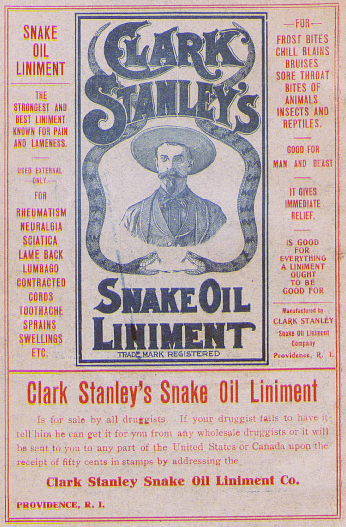Have You Bought Into Any Snake Oil Edtech?
 I saw a tweet from @chronicle for an article titled "Understanding the Origins of Ed-Tech Snake Oil" and that "snake oil" caught my attention. This has to be an opinion piece and someone is not happy.
I saw a tweet from @chronicle for an article titled "Understanding the Origins of Ed-Tech Snake Oil" and that "snake oil" caught my attention. This has to be an opinion piece and someone is not happy.
The author is Michael Feldstein and he leads with a quick list of theories that have been marketed to us like products and have led to a real market for products: personalized learning, adaptive learning, brain and learning science and big data.
Feldstein fels that the marketing for some of these educational products hits us like "a late-night infomercial" including the use of movie disclaimer lines - "based on a novel by" becomes "based on the science of neuroplasticity."
He has used the snake oil comparison before. For the new kids in the audience, snake oil come to America via the Chinese laborers building the transcontinental railroad. For them, snake oil was a traditional folk liniment to treat joint pain. Rival American "medicine" salesmen who used the term generically for things marketed as "panaceas or miraculous remedies whose ingredients were usually secret, unidentified, or mischaracterized and mostly inert or ineffective."
Michael could probably live with that definition in the edtech context too. He comes down on a few products in particular in his opinion piece, but the takeaway for me is to think more about how we are "marketed" by vendors using the very research that some of us have done on learning.
It is worth noting that the original snake oil sometimes was effective, if only because of a placebo effect. But that doesn't mean we want to prescribe its use with our students.
Comments
No comments